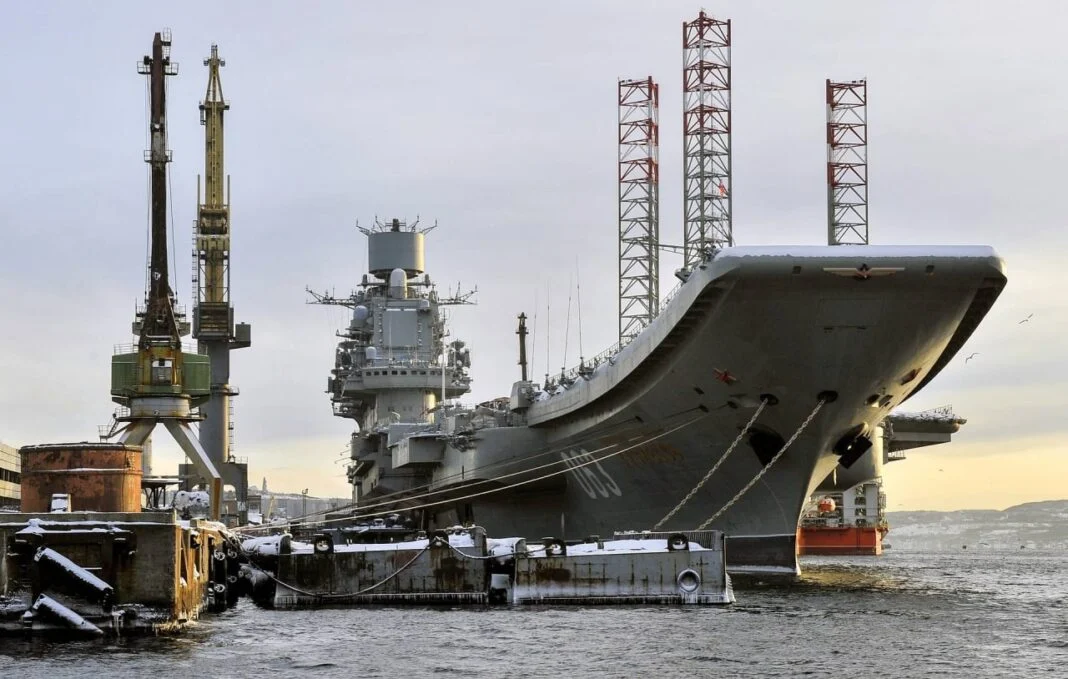
Russia’s only aircraft carrier, the Admiral Kuznetsov, may soon be retired and dismantled after years of failed modernization efforts and a string of high-profile accidents, according to Russian media reports.
Citing informed sources, Izvestia reported that work to repair and upgrade the heavy aircraft-carrying cruiser was suspended some time ago. A decision on whether to resume the project or permanently remove the vessel from service is expected soon from the Russian Navy’s Main Command and United Shipbuilding Corporation (USC), the report said.
“The Navy’s Main Command and USC will soon decide whether it makes sense to continue work on the Admiral Kuznetsov and return it to the fleet,” the publication quoted its sources as saying.
The Admiral Kuznetsov, commissioned in the early 1990s, has been undergoing repairs since 2017. Photos from 2024 show the vessel still moored and incomplete. Once the flagship of Russia’s fleet, the carrier has suffered a series of setbacks, including a major fire in 2019 during welding work.
The blaze, which covered 500 square meters, burned for nearly 24 hours. Fourteen people were injured and two service members were killed. The fire was reportedly caused by a spark from welding equipment igniting diesel fuel.
During its early years, the Admiral Kuznetsov was based in Crimea. In the early 1990s, as the Soviet Union collapsed and the Black Sea Fleet was divided, the vessel was hastily moved to prevent it from being transferred to Ukraine under the fleet redistribution agreements.
Over the years, the carrier became a symbol of the challenges facing Russia’s aging naval infrastructure. In its only combat deployment to Syria in 2016, the ship lost several deck-based aircraft due to technical failures.
Former Pacific Fleet commander Admiral Sergei Avakyants told Russian media that traditional aircraft carriers are no longer suited for modern naval warfare.
“An aircraft carrier is a relic of a bygone era. This is an enormous, costly structure that could be destroyed in minutes by modern weapons,” Avakyants said. “It is very expensive and ineffective naval weaponry.”
The Admiral Kuznetsov’s fate remains undecided, with no official announcement yet from the Russian Defense Ministry or USC. However, the possibility of scrapping the vessel underscores broader questions about Russia’s ability to sustain complex naval platforms amid Western sanctions and limited shipbuilding capacity.
If retired, the loss of the Admiral Kuznetsov would leave the Russian Navy without any carrier-based aviation capability, a gap that contrasts sharply with the growing fleets of NATO and China.